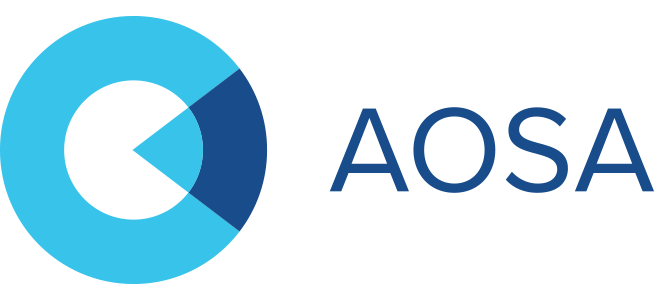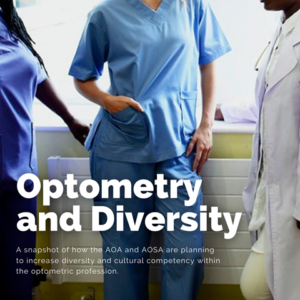During 2020, the murder of George Floyd catalyzed nationwide outrage and frustration around systemic racism and racial injustices. In respo nse to these events, the American Optometric Association (AOA) released a statement condemning racism, intolerance and hate. Moreover, the AOA has reviewed how its structure, policies and culture around race has impacted the optometric profession. Minority members make up 38.8% of the AOA and 48.6% of the American Optometric Student Association (AOSA) membership, according to the 2020 membership report. Although student membership of other minority groups, such as Asian members, has increased in the past years, the proportion of specifically Black and Brown have remained stagnant.
nse to these events, the American Optometric Association (AOA) released a statement condemning racism, intolerance and hate. Moreover, the AOA has reviewed how its structure, policies and culture around race has impacted the optometric profession. Minority members make up 38.8% of the AOA and 48.6% of the American Optometric Student Association (AOSA) membership, according to the 2020 membership report. Although student membership of other minority groups, such as Asian members, has increased in the past years, the proportion of specifically Black and Brown have remained stagnant.
In an effort to combat this trend and work toward a membership that better reflects the American population, the AOA formed the Diversity and Inclusion Task Force in June of 2020. Current actionsinclude increasing the representation of all races and ethnicities in the optometric profession and working to emphasize and support cultural competency amongst its members. Cultural competency and racial representation are crucial in providing better patient care. Research has shown that diversification of health care providers results in more inclusive decision-making, increased efficiency and improved health outcomes. Similarly, the AOSA Board of Trustees formed the Diversity and Inclusion Project Team with the same actions in mind.
To increase diversity amongst members, the AOA is further promoting Black EyeCare Perspective events such as “Impact HBCU” and “Pre-Optometry Club”. Furthermore, the AOA has renewed its commitment to cultivate and expand long-term relationships with Historically Black Colleges and Universities (HBCUs). Specifically, the AOA, with the help of the AOSA, is working to increase awareness, interests and opportunities to students interested in pursuing a career within optometry, especially to Black and Brown students.
Ongoing efforts include joint AOA/AOSA meetings, diversifying AOSA’s social media content and addressing barriers to the application cycle. In January 2021, the AOA and AOSA announced a long-term financial commitment to support the newly created Opportunities in Optometry Grant program to assist in alleviating costs associated with the application cycle. Up to 30 students will receive grants in 2021. Additionally, the AOA/AOSA are working to set up a mentorship program with practicing doctors for grant recipients. For more information or to partner with the AOA/AOSA to ensure the success of this grant in future years, visit the official grant page here.
The AOA also is encouraging ASCO to expand its “Optometry Gives Me Life” campaign to include more targeted messaging to members of the Black and Brown community. To promote diversity among AOA leadership, the AOA has developed the AOA Leadership Institute, chaired by Andrea Thau, O.D. The program is targeted toward newly graduated doctors 5-10 years out of school, empowering them to become leaders on the state and national level. This year’s Leadership Institute consists of 125 doctors who were nominated by affiliates, schools and colleges.
To further encourage cultural competency, both organizations have engaged in conversations with doctors of color to gain the perspective and knowledge to influence the most effective change. AOA and AOSA leadership have undergone training on diversity and cultural competency. Furthermore, the AOA and AOSA are committed to evaluating policies and resolutions to reshape organizational culture. For the past three years, the selection process for authors and speakers for Optometry’s Meeting® has been based on content rather than demographics, resulting in an increase of young, female speakers. The AOA will continue removing demographic information during this process in efforts to minimize implicit bias.
In conjunction with AOA’s efforts to facilitate diversity, equity and cultural competency, this year’s Optometry’s Meeting will have several continuing education courses centered on diversity, including “Understanding Diversity & Inclusion in Eye Health & Vision Care for Enhanced Compliance, Continuity of Care and Practice Growth” and “Improving Patient Communication: What Does Culture Have to Do with It?” Finally, the AOA intends to increase optometry’s exposure and accessibility to the topics covered in these courses by offering them virtually on EyeLearn Professional Development Hub, an AOA member-exclusive education portal.
The AOA Diversity and Inclusion Task Force consists of AOA Board of Trustees members Jacqueline Bowen, O.D., James P. DeVleming, O.D., Steven T. Reed, O.D., and Lori L. Grover, O.D., Ph.D. The AOSA Diversity and Inclusion Project Team consists of Jaime Antonio (OSU), Devyn Hayes (IUSO), Mikala Herr (WUCO), Kimber Mapili (ICO), Anjali Paramanandam (UCB), Helene Pippin (PUCO), Madi Sachs (UCB), Lotus Schifsky (IUSO), Veronica Schuver (OSU), Shaily Sheth (NECO) and Anna Venizelos (NSUOCO).



